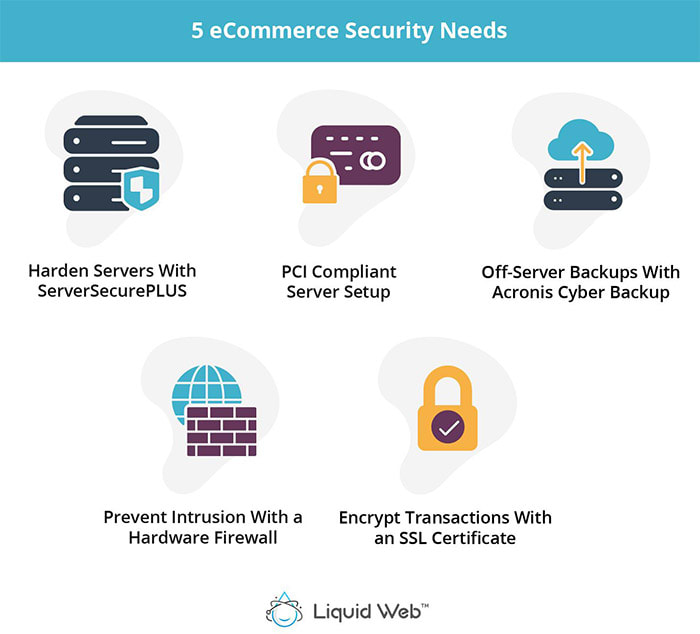
Ensuring Trust: A Deep Dive into E-commerce Security Features
The digital landscape has revolutionized the way we shop, making e-commerce security paramount. This article delves into the intricate web of e-commerce security features, exploring the technologies and practices that safeguard online transactions and instill confidence in consumers.
The Foundation of Encryption: Securing Sensitive Data
At the heart of e-commerce security features lies encryption, a foundational technology that protects sensitive data. Robust encryption algorithms encode information during transmission, ensuring that even if intercepted, the data remains unreadable. This critical layer of security establishes a secure channel between the user’s device and the e-commerce platform, safeguarding personal and financial details.
Secure Socket Layer (SSL) Certificates: Establishing Trust
SSL certificates play a pivotal role in building trust between the user and the e-commerce website. Websites with SSL certificates display a padlock icon in the address bar, signifying a secure connection. This visual cue assures users that their information is encrypted, fostering confidence in the security of the platform. E-commerce security features like SSL certificates are essential for establishing a secure online environment.
Multi-Factor Authentication (MFA): Bolstering Access Controls
Elevating security measures, multi-factor authentication adds an extra layer of defense against unauthorized access. In addition to passwords, users must verify their identity through a second factor, such as a text message code or biometric authentication. MFA minimizes the risk of unauthorized access, ensuring that only authorized individuals can navigate sensitive areas of the e-commerce platform.
Tokenization Technology: Protecting Payment Information
Tokenization technology plays a crucial role in protecting payment information during e-commerce transactions. Instead of transmitting actual card details, tokenization substitutes sensitive information with a unique token. Even if intercepted, these tokens are useless to hackers. This e-commerce security feature minimizes the risk of payment fraud and enhances the overall safety of online transactions.
Fraud Detection and Prevention: Advanced Analytics at Play
E-commerce security features extend to advanced analytics for fraud detection and prevention. Machine learning algorithms analyze patterns of user behavior, flagging any anomalies or suspicious activities. This proactive approach allows e-commerce platforms to identify and thwart potential fraud, safeguarding both the business and its customers from fraudulent transactions.
Regular Security Audits: A Proactive Approach
To maintain the integrity of e-commerce security features, regular security audits are imperative. These audits involve comprehensive assessments of the platform’s security measures, identifying vulnerabilities and addressing potential threats. Proactively conducting security audits ensures that the e-commerce platform remains resilient against evolving cybersecurity challenges.
Firewalls and Intrusion Detection Systems (IDS): Fortifying Defenses
Firewalls and intrusion detection systems fortify the defenses of e-commerce platforms. Firewalls act as a barrier, monitoring and controlling incoming and outgoing network traffic. Intrusion detection systems, on the other hand, actively identify and respond to potential threats. This combination of e-commerce security features creates a robust shield against unauthorized access and malicious activities.
Data Backups and Recovery Plans: Guarding Against Loss
E-commerce security is not just about preventing unauthorized access; it’s also about safeguarding against data loss. Regular data backups and comprehensive recovery plans are integral e-commerce security features. In the event of a data breach or system failure, these measures ensure that critical information can be restored, minimizing the impact on both the business and its customers.
Educating Users: A Collaborative Approach
Beyond technological features, e-commerce security involves educating users about best practices. Platforms implement user-friendly guidance on creating secure passwords, recognizing phishing attempts, and using secure networks. Empowering users with knowledge contributes to a collective effort in maintaining a secure online shopping environment.
Explore Trustworthy E-commerce at thejuon.com
Embark on a secure online shopping journey at thejuon.com. Our commitment to robust e-commerce security features ensures that your transactions are safeguarded, providing a trustworthy and secure environment for your digital shopping experience.
(Note: The URL used is a placeholder and may not lead to an actual website.)
